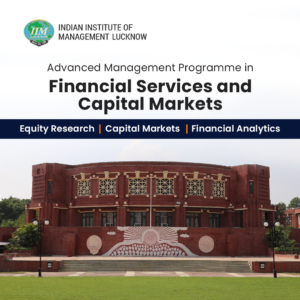Last updated on June 11th, 2024 at 11:50 am
Last Updated on 2 years ago by Imarticus Learning
The global financial system has two broad components in the form of capital markets and money markets. For investors, both markets have different purposes. The money market and capital market difference is that the money market is the place for lending and short-term debt, and the capital market is for long-term assets like bonds and stocks.
As per financial valuation, the capital market might be risky but is more rewarding. However, the money market is a safer alternative if you want to park your money safely.
For developing an understanding of the global financial market, it becomes imperative to gauge the money market and capital market differences. Undertaking a Financial Services course can prove to be helpful in this case.
What is the money market?
Also known as the wholesale market, the money market is an excellent place to park cash for a short time span, generally for a year or less. This market is ideal for banks, companies, financial institutions, the government, and individuals looking for short-term lending. Businesses that need cash can quickly borrow it at reasonable rates from the money market.
The money market operates through various instruments, some of the most common ones being collateral loans, certificates of deposits, bills of exchange, bankers’ acceptances, and so on. Commercial banks, the Federal Reserve, and acceptance houses are some common institutions which operate in the money market.

What is the capital market?
In the financial market, the capital market is the place reserved for long-term debt instruments trading. It is the place for trading bonds and stocks. Financial experts monitor and analyse capital markets closely for understanding the condition of the economy at large, including the status of the various industries in them.
The main aim of business organisations entering the capital market is to raise funds for long-term purposes. Two of the main reasons include increasing the revenues of the business and business expansion. Businesses raise capital by issuing long-term securities, corporate bonds and shares of stock. One of the money market and capital market differences is that the risks involved in the capital market are way higher than in the money market, but they are potentially more rewarding.
There are two vital categories in the capital market:
-
Primary market
In this market, new bonds and stocks are offered to investors and institutions directly. One of the best examples of a primary market transaction is that of an initial public offering or IPO.
-
Secondary market
In the secondary market, the securities have been traded and issued between investors already. Interestingly, the institution which issued the bonds or stocks is nowhere involved in the transaction.
Understanding the Money Market and Capital Market Differences
There are many key money market and capital market differences that segregate them from each other. Undertaking advanced management programme in capital markets and financial services can help us in understanding the way these markets work.
Let takes a look at the money market and capital market difference:
-
Financial instruments
The money market and capital market difference lies in their varied financial instruments. In the capital market, the main financial instruments are long-term securities of various kinds, such as stocks and corporate bonds.
For the money market, the financial instruments include treasury bills, certificates of deposits, collateral loans, bankers’ acceptances, commercial papers, bills of exchange, and so on.
-
The time span of credit needs
Credit requirements in businesses are not uncommon. Businesses looking for short-term credit usually seek assistance from the money market. The business might require some temporary funding for a project which might take a year to complete. The money market is the go-to place for such businesses.
On the other hand, if a business is looking for long-term credit requirements in regard to capital access, there is no better alternative than the capital market.
-
The purpose
To understand the money market and capital market differences, knowing what each market does is essential. The capital market meets the credit requirements of business organisations and various institutions on a mid to long-term basis. It is crucial to fully comprehend what is the capital market as despite its risk, this market has the potential to yield higher returns over time.
The money market, on the other hand, deals with short-term lending and borrowing. Businesses meet their short-term credit needs in this market. Though the funds are safe, growth chances are low in this market.
-
Liquidity
Liquidity measures the ease of asset conversion to cash. When it comes to differentiating the money market and the capital market, liquidity is an important point. The money market offers higher liquidity when compared to the capital market. For instance, if you intend to quickly sell an investment and are well acquainted with what is the money market, you can do it better in the money market and get cash against the asset.
-
Return on Investment
Another money market and capital market difference is that the money market helps in getting more liquidity with lower risk levels. At the same time, you will get lower returns for the investments as well.
However, in the capital market, you will have greater risk levels, but you will enjoy higher returns. If you take higher risks, you might end up gaining more from the investments.
Conclusion
Businesses are often confused as to where they should invest their money – in the capital market or in the money market. Once you understand the money market and capital market difference along with their features, you can take a final decision as to which market is suitable for your business needs.
There are dedicated management programmes offering a close insight into the capital markets and financial services. IIM Lucknow Capital Markets certification is one such programme, which prepares you for leadership roles in the capital markets and financial services.
Imarticus Learning is an excellent platform where you can seek an Advanced Management Programme in Financial Services and Capital Markets offered by the Indian Institute of Management Lucknow. The 6-month financial services and capital market course offers a comprehensive understanding of capital markets, investment banking, fintech, and risk domains. Targeted at mid-level professionals, this course helps in gaining a strong foothold in the finance industry. Some of the topics included in the course are Financial Valuation, Corporate Finance and Accounting, Capital Markets, Financial Risk Management and Compliance, etc.
Sign up for the course today!

